Women in Business

Q4 2022 | A promotional supplement distributed on behalf of Mediaplanet, which takes sole responsibility for its content

Sandra Kerr CBE, Race Director, Business in the Community Page 02
www.businessandindustry.co.uk
Nicola Brittain, Chief Editor, WISE Page 04

“A mentor can be an essential part of an employee’s experience at work.”
“How to recruit women returners into STEM roles for diversity and growth.”
Mentors can be the change women want to see in business
A mentor can be an essential part of an employee’s experience at work. But not everyone has one, and we need more women to step up and mentor people.
Four in ten carers say their responsibilities have prevented them from applying for jobs or promotions. This is more common for women and carers from Black, Asian, mixed race and ethnically diverse backgrounds compared to men and white carers.1

Mental health consequences
Recent research finds that out of employees from ethnically diverse backgrounds, Black women are the least likely to be among the UK’s top earners compared to other racial and gender groups.2 These inequalities and challenges will affect women’s finances, careers and mental health and wellbeing. A 2014 survey by the Cabinet Office Race Disparity Unit found that almost a third of Black and Black British female respondents reported experiencing a common mental health disorder in the same week.
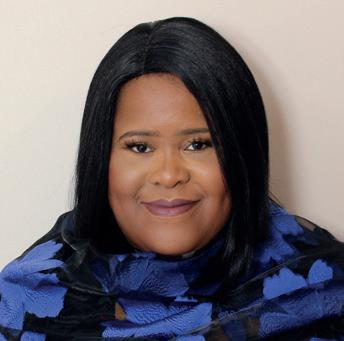
70% of Arab respondents want a mentor.3 Employees from Black, Asian and ethnic minority backgrounds have been shown to display high levels of career ambition but often feel a lack of opportunity for career progression.4
That is why we need businesses to sign up for Business in the Community (BITC)’s Race at Work Charter where people can become mentors to their colleagues, regardless of what career stage they are at, so they can understand working at different levels.
Mentoring tools

Our Mental Health and Wellbeing for Ethnically Diverse Women toolkit can help managers understand the challenges that female colleagues of Black, Asian, mixed race and ethnically diverse backgrounds face — and receive guidance on how to support them.5 We can help each other by taking that step and becoming a mentor.
References
from Black, Asian and ethnic minority backgrounds have been shown to display high levels of career ambition but often feel a lack of opportunity for career progression.
Value of a mentor
Having a mentor can be an essential part of anyone’s career. But not everyone has one, and we need more women to step up and mentor people at various stages of their careers.


Our 2021 Race at Work Survey found that out of over 24,000 employees surveyed about their work experiences, more than half from different ethnic backgrounds did not have a mentor. It also found that 54% of Black and Black British and
1. Business in the Community, Who Cares? Report. 2021. https://www.bitc.org.uk/report/who-cares/ 2. LSE, Black women are least likely to be among UK’s top earners, 2021. https://www.lse.ac.uk/News/Latest-news-from-LSE/2021/c-March-21/Black-women-areleast-likely-to-be-among-UKs-top-earners
3. Business in the Community. Race At Work 2021: The Scorecard Report. https://www.bitc.org.uk/ report/race-at-work-2021-the-scorecard-report/
4. Business in the Community. Race at Work 2018: The Scorecard Report. https://www.bitc.org.uk/ report/race-at-work-2018-the-scorecard-report/
5. Business in the Community, Mental Health and Wellbeing for Ethnically Diverse Women, 2021. https://www.bitc.org.uk/toolkit/mental-health-and-wellbeing-for-ethnically-diverse-women/
02 MEDIAPLANET A PROMOTIONAL SUPPLEMENT DISTRIBUTED ON BEHALF OF MEDIAPLANET, WHICH TAKES SOLE RESPONSIBILITY FOR ITS CONTENTS READ MORE AT BUSINESSANDINDUSTRY.CO.UK
@BusinessandindustryUK Contact information: uk.info@mediaplanet.com or +44 (0) 203 642 0737 @MediaplanetUK Please recycle
BY Sandra Kerr CBE Race Director, Business in the Community IN THIS ISSUE
a difficult economic climate, successful recruitment for essential roles is more important than ever.”
Employees
WRITTEN
“In
Brittain Chief Editor, WISE Page 04 Business Development Manager: Chloe Leedham chloe.leedham@mediaplanet.com Managing Director: Alex Williams Head of Business Development: Ellie McGregor | Head of Print & Design: Thomas Kent Designer: Aimee Rayment Content Editor: Angelica Hackett O’Toole | Head of Digital Operations: Harvey O’Donnell Paid Media Strategist: Jonni Asfaha Social & Web Editor: Henry Phillips Digital Assistant: Carolina Galbraith Duarte | All images supplied by Gettyimages, unless otherwise specified “Burnout culture needs to stop.” Lexie Papaspyrou Chief Operating Officer, Tech Talent Charter Page 06 Want to get involved in a future campaign? Send us an email at uk.info@mediaplanet.com
Nicola
The climate crisis and its consequences are one of the greatest challenges ever to face mankind. But our vision is simple: to provide clean, affordable energy for all.
At Rolls-Royce SMR, our Small Modular Reactor (SMR) takes well-understood, existing nuclear technology and applies a radically different ‘factory-based’ approach to its fabrication and assembly. Each SMR power station will generate 470MW of clean electricity from a sustainable source — providing reliable, low-carbon energy for generations to come. Deploying a fleet of Rolls-Royce SMRs in the UK will create 40,000 regional UK jobs and accelerate economic growth. But we still need to do more to ensure its success, and that’s where you come in.
Diverse talent and innovative thinking
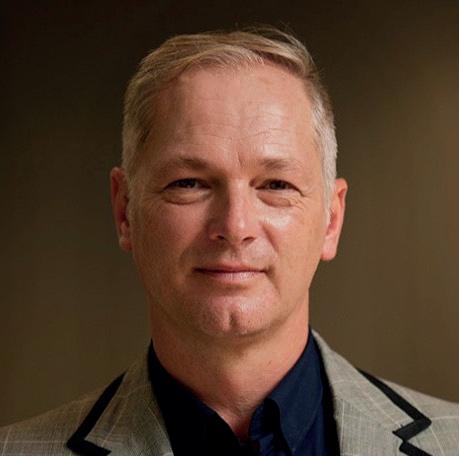
The research is clear: diverse teams get better results. Diverse teams are more engaged. They have different ways of thinking. And that’s what we need right now — different ways of doing things so that we can address the climate crisis that faces us.
The nuclear industry — as with many engineering sectors — hasn’t always attracted the most diverse

talent, but that’s changing. There are admirable goals within the industry to have a 40% female nuclear workforce by 2030, and we’re playing our part in that. But we must also ensure that everyone knows they are welcome in nuclear, no matter who they are — whether that’s LGBTQ+ people who can be their authentic selves; those with disabilities who can work free from barriers; or people of ethnic minority backgrounds who can progress in their careers without bias.
Our work — our industry — needs the most talented people to drive the innovation that will help us succeed, and the more diverse they are, the better.
Changing times, changing culture
Attracting talent starts with culture. Whether that’s ensuring young people can experience the excitement of working in engineering or supporting experienced people back into the workplace. Hybrid working is our new norm, but behaviours like empathetic leadership, embedding flexible working practices and creating psychologically safe spaces truly help to ensure everyone feels they belong.
The climate crisis is a worrying time; but no matter who you are or how you identify, engineering and the nuclear sector provide exciting opportunities for us all to make a difference. Come forward — the planet needs you.
Start or restart your career in nuclear. Scan the QR code to learn more about inclusive careers at Rolls-Royce SMR.
 ~Sandra Kerr CBE, Race Director, Business in the Community
~Sandra Kerr CBE, Race Director, Business in the Community
A PROMOTIONAL SUPPLEMENT DISTRIBUTED ON BEHALF
TAKES SOLE RESPONSIBILITY FOR ITS CONTENTS READ MORE AT BUSINESSANDINDUSTRY.CO.UK 03 MEDIAPLANET
OF MEDIAPLANET, WHICH
Paid for by Rolls-Royce SMR
Net zero needs innovative thinking, and that’s where you come in
WRITTEN BY Adam Ellis
Talent & HR Director, Rolls-Royce SMR
Attracting talent starts with culture.
ImageprovidedbyRolls-RoyceSMR
Four in ten carers say their responsibilities have prevented them from applying for jobs or promotions.
How to recruit women returners into
STEM roles for diversity and growth
Reskilling and support should
In a difficult economic climate, successful recruitment for essential roles is more important than ever since there will be less budget available to replace people that don’t pass their probation or suit the team.
Many tech companies including Microsoft, Twitter and Tesla have made redundancies recently, just as other STEM-sector organisations currently face a difficult economic backdrop. Many STEM organisations with diversity, equity and inclusion (DE&I) and recruitment targets are waking up to the fact that targeting the wealth of untapped potential offered by women returning to the workforce after a career break may be the best way to fill those essential roles.
Wealth of untapped talent
Such women are often highly educated and/or skilled with considerable experience in the labour market. Employers also often recognise that taking time off to have children or care for elderly relatives may have led to the accrual of new transferable skills such as planning, scheduling, organising and more. A broader recruitment net that recognises these skills will see that women can be an excellent addition to a STEM workforce.
A buddy system pairing returners with other women or people who have had career breaks can help to increase the feeling of belonging.
Creating a returners programme
Recruiting women returners does require some preparation, however. Many will require training, particularly if working in a computing or technology role. Reskilling and support should be offered as part of a coordinated programme. A buddy system pairing returners with other women or people who have had career breaks can help to increase the feeling of belonging.
Personal coaching can help with confidence and establishing a career path, and an employer should also be sure to offer flexible working opportunities where possible. Initiatives must be organised and coordinated with clear objectives established at the outsets. Finally, any returners programme should be supported by senior management.


Conference supporting returners
Supporting women returning into STEM roles is one of the key themes of the WISE Conference 2023, to take place on 21 March at the IET in London.
For information on sponsorship opportunities, please visit wisecampaign.org.uk/conference-2023/
To purchase tickets to the event, please visit wisecampaign.org.uk/event/wise-conference-2023/
04 MEDIAPLANET A PROMOTIONAL SUPPLEMENT DISTRIBUTED ON BEHALF OF MEDIAPLANET, WHICH TAKES SOLE RESPONSIBILITY FOR ITS CONTENTS READ MORE AT BUSINESSANDINDUSTRY.CO.UK
WRITTEN BY Nicola Brittain Chief Editor, WISE
Revving up careers with one of the world’s most iconic ultra-luxury brands
Wherever they work, staff should feel valued and supported by their employers, says Hilary Andrew, Team Leader at the car company who is responsible for the delivery of cost, timing and engineering of V12 sports cars.
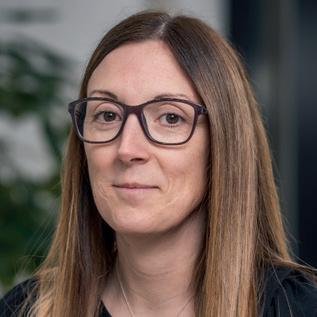
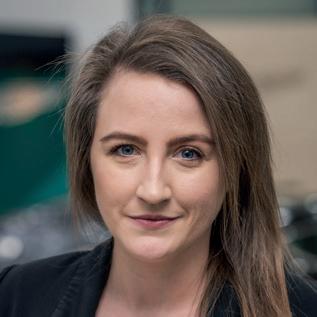
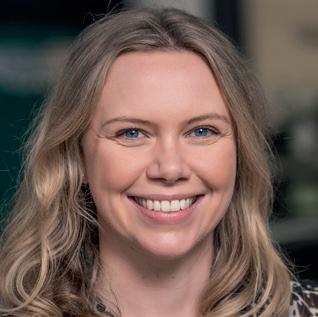
“I started here as an intern after completing my mechanical engineering degree. I was supposed to stay for three months — but that was nearly 10 years ago! I’ve been lucky enough to be placed in seven different departments, which probably wouldn’t happen at a mass manufacturer. Also, because we’re smaller, management knows everyone. It feels like a family here. We’re able to voice our opinions and, if we disagree, we do so respectfully.”
Focus on personal growth and improving skillsets
Bole and Horrey reveal that they have a strong focus on delivering its programmes through its people, with both women taking part in a recent ‘Empowering Females in Leadership’ pilot. “This business isn’t just about solving technical challenges. It’s also about developing those who work here,” says Bole.
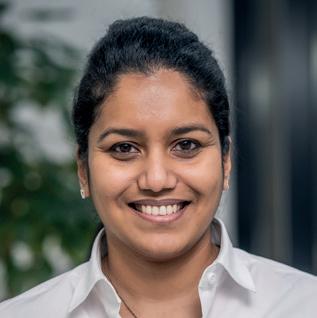
Automotive is open to anyone of any background, says Andrew — although it’s still a male-dominated sector.
Like many people, Marissa Bole gets a thrill whenever she sees an Aston Martin on the road. This is, after all, one of the most famous marques in the world, driven by everyone from James Bond and Oscar nominated actor Felicity Jones to King Charles.


It’s rather different in Bole’s case, however, because she may have played a part in the car’s creation. As Head of Integration at Aston Martin Lagonda, she’s the engineer responsible for all vehicle-level software for all car lines across the business. “I come from a background where I only saw Aston Martins in films or on TV,” she says. “So, to see one on the road that I’ve been involved with — such as the latest DBX707 — is a great feeling.”
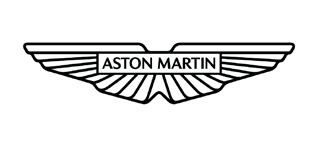
Bole wanted to be an engineer from a young age. “After leaving university with a degree in mechanical engineering, I started my career in motorsports before moving into automotive,” she says. “In engineering, every day is different. It’s not a job you do on repeat.” She is one of a growing number of female leaders at Aston Martin, as the company accelerates towards a target of achieving 25% female leadership within the next five years and attracting new talent to what has historically been an overwhelmingly male-dominated industry.
Gaining experience in different areas of the business
Victoria Horrey, a Programme Manager, agrees. She took a different route into the business and is responsible for coordinating the delivery of vehicles — from the concept phase to the start of production. “I don’t have a degree,” she says. “I started with the company 15 years ago as a personal assistant before moving into various departments. That’s the thing here: if you’re interested in working in a specific area, then management is open to giving you that opportunity. That’s why I say to anyone interested in a STEM career: ‘There’s always a way in if you’re determined enough.’”
A supportive, close-knit work environment
Veena Thankachan, an Infotainment Manager at Aston Martin, is responsible for in-car touch screens, displays and audio systems and says that part of the joy of her job is working for an ultra-luxury brand. “It helps to work for a company where the cars are so highly appreciated,” she notes. “But, for me, the most important factor in any workplace is the people. Although my team is relatively new, it’s made up of like-minded individuals who are helpful, innovative and thrive on a challenge.”
“I’ve never had any issue with that,” she insists. “But, as an industry, we must tackle unconscious bias and misgendering. Don’t always assume that an engineer will be a man.”
Thankachan, meanwhile, has sound advice for any woman considering a STEM career. “Go in with a focus on personal growth and improving your skillsets,” she says. “Everyone should do that, irrespective of their gender. Lean into your strengths and do your best. With that mindset, you can accomplish anything.”
A PROMOTIONAL SUPPLEMENT DISTRIBUTED ON BEHALF OF MEDIAPLANET, WHICH TAKES SOLE RESPONSIBILITY FOR ITS CONTENTS READ MORE AT BUSINESSANDINDUSTRY.CO.UK 05 MEDIAPLANET
Four women working at one of the world’s most iconic brands — who took different routes into the business — reveal how to thrive in the automotive sector, irrespective of your gender.
Explore careers at astonmartin lagonda.com
Paid for by Aston Martin Lagonda
INTERVIEW WITH Marissa Bole
Head of Integration, Aston Martin Lagonda
INTERVIEW WITH
Victoria Horrey Programme Manager, Aston Martin Lagonda
INTERVIEW WITH Veena Thankachan, Infotainment Manager, Aston Martin Lagonda
INTERVIEW WITH Hilary Andrew Team Leader, Aston Martin Lagonda
WRITTEN BY Tony Greenway
Felicity Jones stars in the latest Aston Martin© marketing campaign
Tech’s retention problem: women are leaving at worrying rates
The digital sector has grown rapidly over the last year, with over 2,000,000 vacancies advertised. Despite this growth, women continue to be underrepresented, making up 19% of tech workers and 22% of tech directors. Perhaps equally as worrying — women are leaving tech roles 45% more than men.
Why are women leaving tech?
Research from Accenture found that 50% of women in tech roles leave by age 35, citing non-inclusive company culture. A survey by Deloitte of women in global tech found that, compared to pre-pandemic, women have experienced dramatic drops in job satisfaction, work-life balance and feelings of loyalty to their employers.

There is growing interest from organisations on how to retain women. There’s no simple solution, but adopting inclusive practices, addressing ingrained cultural problems and implementing schemes aimed at supporting the retention and development of women all have an important part to play.
What does this mean in practice?
Burnout culture needs to stop: Tech jobs often involve long hours and competitive practices. This creates a burnout culture and participation barriers for people with caring responsibilities (disproportionately women).
Look beyond salary: Paid leave and work-life balance are more important. Work-life balance and good paid leave were found to be more significant factors in career decisions for women and minorities than salary. Organisations need to embed a culture of work-life balance and have senior leaders model the proactive use of flexible working. We also need to change the narrative around parental leave and flexible (part-time) working policies, normalising that people of all genders use these working arrangements.
Training and mentoring are critical to ensuring women progress in tech. Our research with WeAreTechWomen showed that women highly attributed programmes like sponsorship and mentoring to aid career progression; however, access to these programmes is often limited.

Improve tracking: Our survey found that 63% of companies in our sample were not tracking or measuring the progression or retention of their employees. Without better data, we cannot understand the scope of the retention issue and track effective interventions.
Looking forward
The positive news is that organisations are increasingly focusing on the retention problem. But there is more to be done, and cross-sector collaboration is needed to drive meaningful and inclusive change.
The Tech Talent Charter is a governmentsupported, industry-led membership group that brings together 700+ signatory organisations and equips them with the networks and resources to drive their diversity and inclusion efforts.
06 MEDIAPLANET A PROMOTIONAL SUPPLEMENT DISTRIBUTED ON BEHALF OF MEDIAPLANET, WHICH TAKES SOLE RESPONSIBILITY FOR ITS CONTENTS READ MORE AT BUSINESSANDINDUSTRY.CO.UK
beyond salary: Paid leave and work-life balance are more important.
With tech vacancies skyrocketing, organisations are focused on hiring. But are they looking closely enough at retaining the women working for them?
Look
WRITTEN BY Lexie Papaspyrou Chief Operating Officer, Tech Talent Charter
Having a mentor can be an essential part of anyone’s career. But not everyone has one, and we need more women to step up and mentor people at various stages of their careers.
Kerr CBE, Race Director, Business in the Community
A PROMOTIONAL SUPPLEMENT DISTRIBUTED ON BEHALF OF MEDIAPLANET, WHICH TAKES SOLE RESPONSIBILITY FOR ITS CONTENTS READ MORE AT BUSINESSANDINDUSTRY.CO.UK 07 MEDIAPLANET
Sandra
Shining a spotlight on women driving change in aerospace engineering

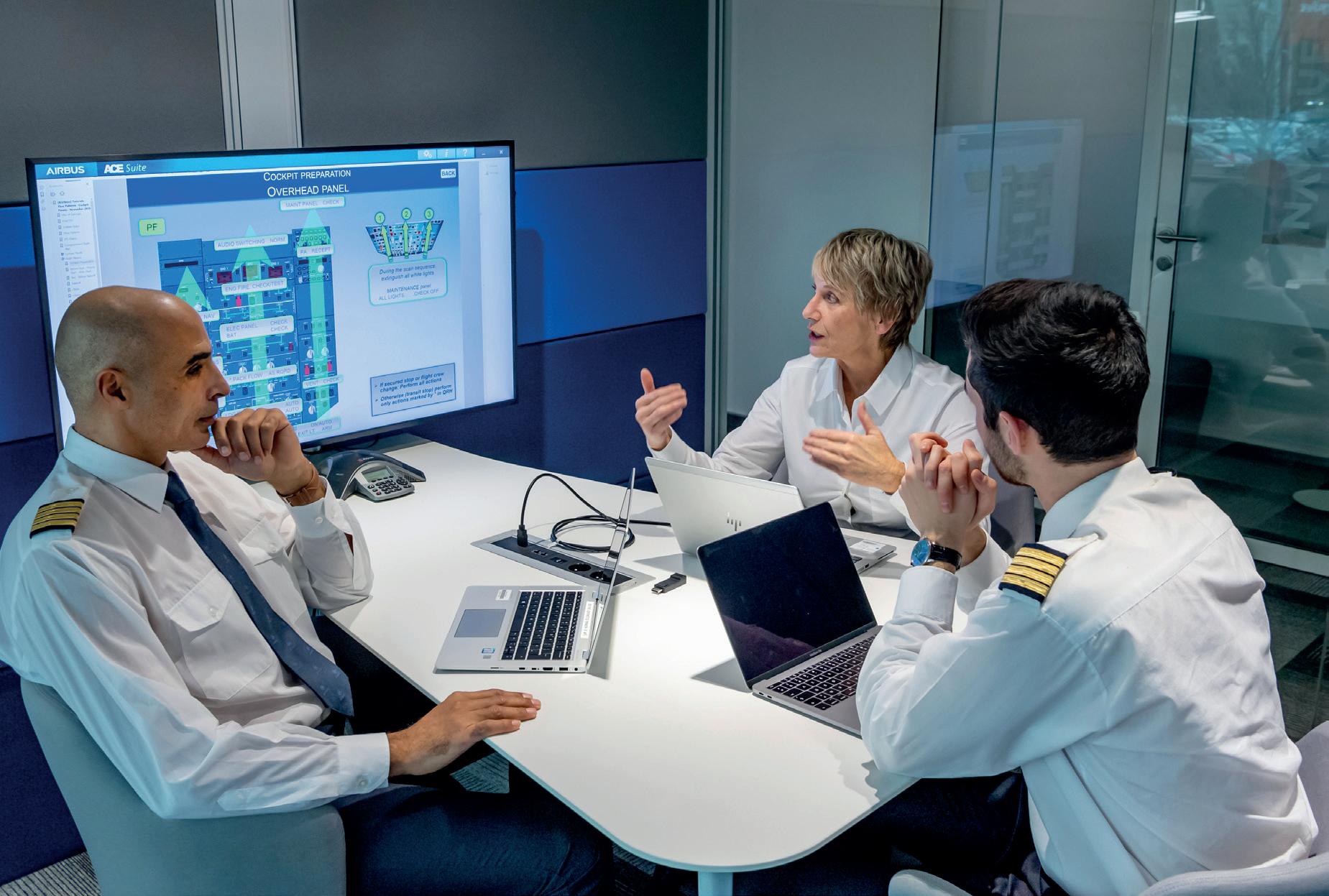
Aoife Crompton, Airworthiness Engineer, Airbus
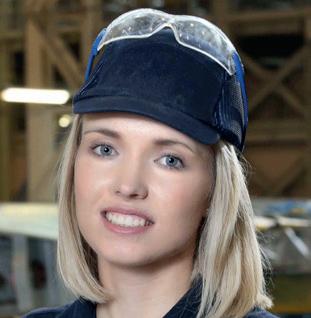
Aoife is a Continued Airworthiness Engineer, based in Filton, near Bristol, investigating potential safety-related issues with aircraft in production and in service. She joined Airbus in 2007 on a Graduate Programme, and her career has taken her to the company’s headquarters in Toulouse, among other places. She is the mother of two children.
During my career, I’ve been lucky enough to be involved in aircraft testing which is so exciting. It can also be emotional when you’re standing on the runway watching a plane you’ve worked on take off on its maiden flight. This industry is so varied, though. At the other end of the scale, I’ve worked in customer service engineering. That’s a very reactive job, because it’s about helping airlines improve their service to their customers.
Before I had children, I thought I could manage a full-on family life and a career. Then I had children and realised it’s hard work! I currently work a four-day week, which gives me time to spend with my kids. It’s a hybrid working arrangement, too, which gives me more control over my work-life balance. Flexibility has been really important to me as a working mum.
Devon has always had a keen interest in aviation and joined Airbus as an Undergraduate Apprentice in 2011.
She is now the Head of A330 Assembly & Equipping, based in Broughton, North Wales, responsible for leading a 160-strong team that produces the wings for A330 aircraft.

The moment I started my apprenticeship, I felt I’d come home. It is a male-dominated industry — when I joined, there were just a handful of women apprentices in my year — but, honestly, that’s never fazed me.
I don’t feel I’ve encountered many challenges as a woman in STEM; although a few people have said to me: ‘I thought
you only got this role because you were female. Now I can see it’s because you’re good at what you do.’ While I enjoy knocking down those walls, it shows there are still perceptions and biases — not always intentional — that women have to deal with.
The more female role models we have in positions like mine, the better it will be. Certainly, the number of female apprentices and graduates has grown significantly during my time at Airbus, because the company is continually reaching out to capable women to highlight the range of career opportunities on offer.
Lucinda Williams, Head of Transversal Solutions & Product Management, Airbus Lucinda studied at the LSE and then served in the Royal Navy for five years. She has been with Airbus for 22 years in a range of roles and is currently Head of Transversal Solutions & Product Management, based in Stevenage, leading a team of 28 product and solution experts. I don’t come from a science background. I dropped chemistry, physics and biology at school and studied social sciences at university. But you don’t have to be an engineer to be an engineering leader. My current role involves managing our R&D budget and facilitating the brilliant experts in my team.
I feel as though I’ve challenged the status quo during my career. First, I’ve shown that it’s possible to be a leader in the defence industry, be married to someone who is on deployment with the Navy for months at a time and bring up a family. Also, it’s not unusual for me to be the only woman in the room, either; but — perhaps due to my military background — that’s never bothered me.
Plus, I’ve helped push boundaries by progressing women in my team and recruiting superb female talent, who I fully expect to leapfrog me on the career ladder.
08 MEDIAPLANET A PROMOTIONAL SUPPLEMENT DISTRIBUTED ON BEHALF OF MEDIAPLANET, WHICH TAKES SOLE RESPONSIBILITY FOR ITS CONTENTS READ MORE AT BUSINESSANDINDUSTRY.CO.UK
Paid for by Airbus
Devon Sumner, Head of A330 Assembly & Equipping, Airbus
Three women — who each took very different paths into the fast-paced aerospace industry — reveal how they have challenged the status quo over the course of their careers.
Scan the QR code to find out more
It’s not unusual for me to be the only woman in the room, either; but — perhaps due to my military background — that’s never bothered me.
I’ve helped push boundaries by progressing women in my team and recruiting superb female talent, who I fully expect to leapfrog me on the career ladder.
WRITTEN BY Tony Greenway
INTERVIEW WITH Aoife Crompton Airworthiness Engineer, Airbus
INTERVIEW WITH Devon Sumner
Head of A330 Assembly & Equipping, Airbus
INTERVIEW WITH
Lucinda Williams
Head of Transversal Solutions & Product Management, Airbus
Image provided by Airbus











 ~Sandra Kerr CBE, Race Director, Business in the Community
~Sandra Kerr CBE, Race Director, Business in the Community














